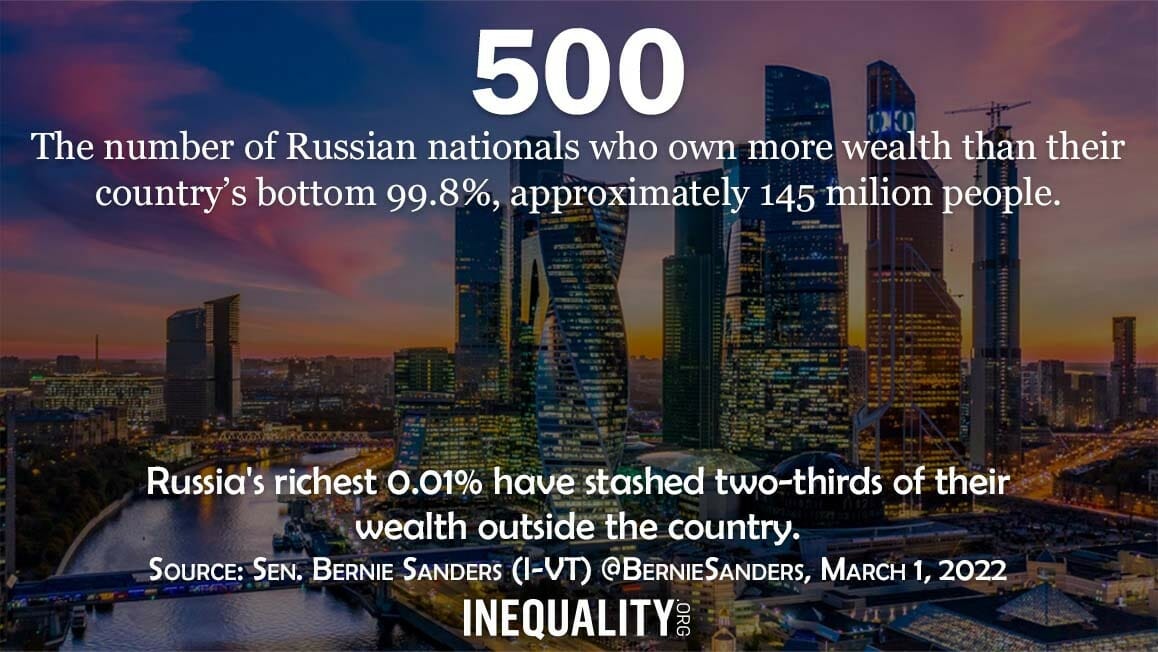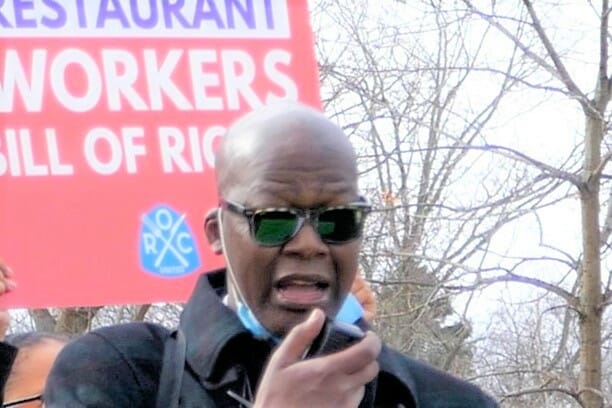| THIS WEEK |
Increasing taxes on the wealthy — a policy dedicated readers know we stalwartly support — only benefits society when we have mechanisms in place to keep tax-dodgers in check. The IRS has historically been that mechanism. But years of Republican budget cuts have left the agency chronically underfunded. Now the Biden adminmistration is planning a massive hiring spree to increase the IRS workforce by 14 percent.
Will this increase be enough to offset what we like to call the “wealth-defense industry,” that swarm of financial advisors, law firms, and lobbyists dedicated to protecting grand private fortunes? Not likely.
Because of the relatively modest pay for civil servants, as we told the Washington Post last week, the IRS will likely continue to be "completely outgunned” by our nation’s enormously well-compensated professional wealth-hiders.
These wealth-hiders have become particularly adept at manipulating philanthropy. In this week’s issue, we’re highlighting our new research on philanthropy and global oligarchic power. Check out our new charts — and help us end the philanthropic perversion the wealth-defense industry has inflicted upon us!
Chuck Collins and Rebekah Entralgo,
for the Institute for Policy Studies Inequality.org team
|
|
| |
|
| INEQUALITY BY THE NUMBERS |
 |
|
|
|
| |
|
| FACES ON THE FRONTLINES |
 |
| Demanding a Restaurant Workers Bill of Rights |
On 9/11, Dr. Sekou Siby, an immigrant to the United States from the Ivory Coast, was working as a cook and dishwasher for a restaurant in the World Trade Center. But on that tragic day, Siby wasn’t working. He’d switched shifts with another employee who died in the terrorist attack.
Since that traumatic experience, Siby has devoted his life to improving restaurant wages and working conditions, a cause that has become even more vital during the pandemic. Now the president of Restaurant Opportunities Centers United, Siby last week led a Capitol Hill rally to demand a Restaurant Workers Bill of Rights.
In an Inequality.org exclusive, Siby lists some of the demands the more than 65,000 members of his group are making, everything from time for healing and rest and a safe and dignified work environment to universal healthcare and bodily autonomy. |
|
| |
|
| WORDS OF WISDOM |
 |
|
|
|
| |
|
PETULANT PLUTOCRAT
OF THE WEEK |
 |
| A Strange Pathway to a Green ‘More Equal World’ |
| Forbes has just declared Mukesh Ambani, the chairman of India’s mega Reliant Industries, the richest human being in Asia, and Ambani has been taking a media victory lap to celebrate his lofty new status. But he’s been taking pains in that lap to paint himself as a man of the people committed to saving “the fragile ecology of the planet” and creating “a more equal world.” How’s Ambani actually doing on those scores? Not so well. In 2015, in a move to encourage more equal corporate compensation, India’s Securities and Exchange Board ruled that Indian corporations must annually disclose the ratio between what they pay their top execs and what they pay their workers. Ambani’s Reliant Industries has been the only Indian corporate giant that’s been “dodging compliance” with that ruling. Ambani the “environmentalist,” meanwhile, has just purchased a souped-up, 2.5-ton, 12-cylinder, gas-guzzling Rolls Royce Cullinan model for over $1.7 million. Ambani already had two other Rolls Cullinans in his Reliant garage. His current net worth: just shy of $90 billion. |
|
| |
|
| BOLD SOLUTIONS |
 |
| Don’t Wait for Billionaire Charity to Fix America |
The Chronicle of Philanthropy publishes an annual list of the top 50 donors of the year. In 2021, these ultra-wealthy individuals gave vast sums to universities and major medical centers that will likely go toward buildings and endowments with the donors’ names on them. Fourteen of these 50 biggest donors gave mainly to their own private foundations or donor-advised funds.
“From these giving priorities,” notes Inequality.org co-editor Chuck Collins in The Hill, “you would never know we were living through a global pandemic, an ecological crisis, spiraling wage and wealth inequality, or a national reckoning on racial inequity.”
In a new report, Collins and Institute for Policy Studies associate fellow Helen Flannery present a series of charts showing how the concentration of wealth is warping the giving sector. Through a new IPS Charity Reform Project, they’re working to help philanthropy become more than an extension of the power and influence of the billionaire class. |
|
| |
|
| GREED AT A GLANCE |
 |
|
|
|
| |
|
| TOO MUCH |
 |
| Could Global Oligarchy Be a Loser In This War? |
| Economists and political scientists have been reflecting of late on how, why, and when do societies end up taxing the rich. Historical moments, these researchers are concluding, really matter. Turns out that societies don’t tax the rich after duly deliberating about timeless questions of what makes for tax fairness. They tax the rich during moments of social convulsion, especially those that accompany open conflict between nations. We may be in, with the war in Ukraine, one of these opportune moments. We may now have a chance — in the wake of the Russian invasion — to start shearing oligarchy worldwide down to a much more democratic dimensions. Inequality.org’s Sam Pizzigati has more. |
|
|
|
| |
|
| MUST READS |
What's on Inequality.org
Sarah Anderson, Biden Doesn’t Need to Wait for Congress to Begin Transforming the Economy. The president’s State of the Union address tasked Congress with an ambitious agenda, but Biden needs to do much more on his own to reduce inequality.
Jen Moore, Guatemalan Water Defenders Celebrate 10 Years of Resistance. An attempted assassination, criminalization, and violent eviction in 2014 hasn’t stopped the Peaceful Resistance of La Puya in Guatemala, which has won the suspension of harmful mining activities.
Elsewhere on the Web
Chuck Collins, Don't wait for billionaire philanthropy to fix America, The Hill. Private billionaire foundations need only give away 5 percent of their assets a year, and overhead, salaries, and program expenses count toward this “payout” rate.
Debra Satz and Stuart White, Why you should care about the wealth gap — even if you think you don’t, Prospect. Excessive economic inequality has specific consequences that threaten our democracies.
Joseph Stiglitz, COVID Has Made Global Inequality Much Worse, Scientific American. The United States, due in part to its huge inequalities, has suffered more Covid-attributed deaths than any other country.
Ana Kent, Nikki Lanier, David Perkis, and Claire James, Examining Racial Wealth Inequality, Federal Reserve Bank of St. Louis. New research updates the racial wealth gap through 2019.
Austin Clemens, More frequent disaggregated data on U.S. income inequality would improve economic research and inform policymaking, Washington Center for Equitable Growth. The federal government is currently devoting considerable resources to the production of national growth stats while ignoring how that growth gets distributed.
Chloe Berger, The death of offices and the rise of remote work could mean someone with your title makes 20x more than you, Fortune. Why our shift to remote work could lead to a group of elite white-collar employees.
Faith Hillis, Seize the Oligarchs’ Wealth, Atlantic. A crackdown on the oligarchs could also offer solutions to broader social problems. Increased regulation of hidden assets and blind trusts would address the growing plague of political corruption evident in the United States and elsewhere.
Abe Asher, On His Way to Theoretically Colonize Mars, Elon Musk Is Actually Colonizing South Texas, Jacobin. In Brownsville, one of the country’s poorest cities, residents have become tired of getting treated as if they didn’t exist. |
|
| |
|
| A FINAL FIGURE |
 |
|
|
|
| |
|
| BE THE 1% (NO, NOT THAT 1%) |
 |
Our goal for 2022: that 1% of our Inequality.org subscribers become monthly sustainers and help grow our newsletter and research efforts. Be the 1%, for as little as $3 a month! |
|
|
|
| |
|
|